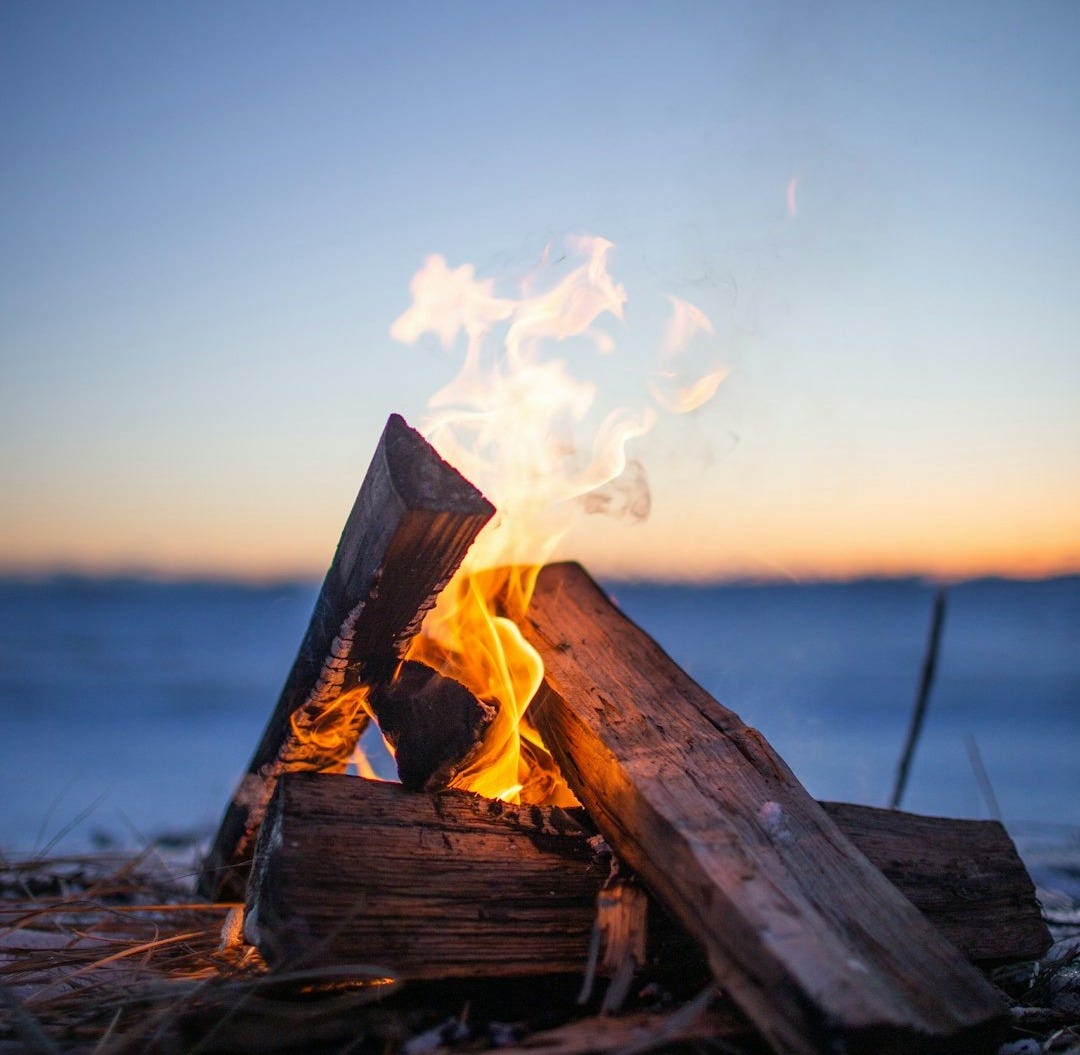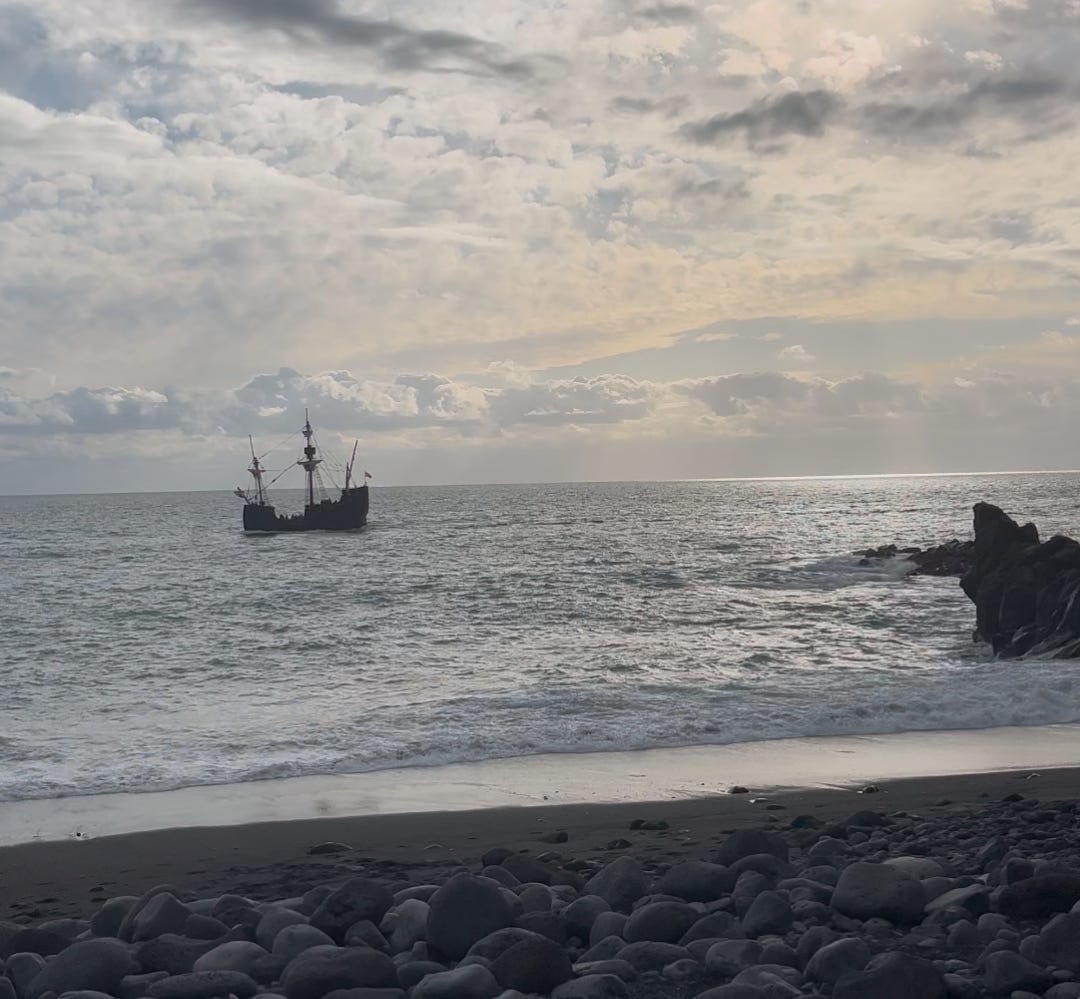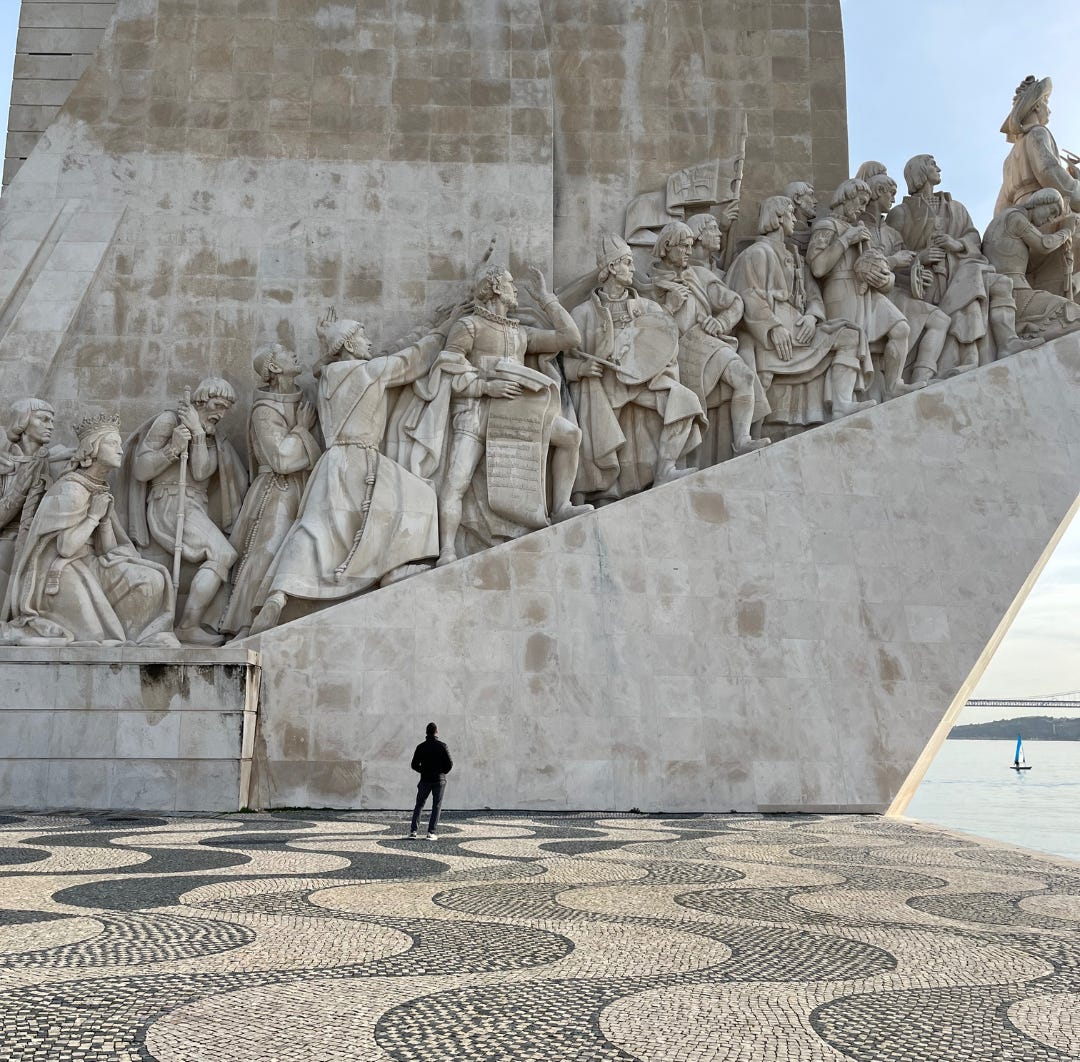Burning the Ships: Finding Freedom in the Flames of Letting Go
The alchemy of fire for personal growth
As the saying goes, we are the captains of our ships. The metaphor "captain of your ship" means you control your life's direction, make key decisions, navigate challenges, and steer yourself toward your chosen goals. Like a ship's captain who determines the vessel's course through various conditions, you have the power and responsibility to chart your personal and professional journey.
There's a moment in history that has captured imaginations for centuries: Hernán Cortés, upon reaching the shores of Mexico in 1519, ordered his men to burn their ships. While historical records suggest the ships were scuttled (sunk) rather than burned, the metaphorical power of this act resonates across five centuries – the deliberate elimination of the possibility of retreat, the absolute commitment to moving forward into the unknown.
If you have read earlier posts, you know my husband and I sold all our possessions and left the United States to travel full-time as midlife nomads. I am chronicling the journey here through Substack. So, if this is our first meeting, read my other posts to get an idea of how we got to the point of “burning the ships”!
The Weight of Our Ships
We all have our ships – those comfortable certainties we cling to, the familiar harbors we can return to, the well-worn maps we've used to navigate our lives. They might be careers we've spent decades building, homes filled with memories, or beliefs about who we are and what we're capable of. These ships represent safety, certainty, and the accumulated wisdom of our years.
But what if these very vessels, which once carried us to where we are, have become anchors holding us in place? This particular thought had never entered my mind until we started the research of living a more soul-filled life now instead of waiting until retirement age and set our intentions on the radical idea of a traveling nomadic lifestyle in midlife. With this thought, we had to make some tough decisions and cut right to living with what we could fit into a suitcase and a backpack.
The Courage to Burn
Cortés understood something profound about human nature: as long as retreat remains possible, we never fully commit to the new territory before us. The presence of those ships on the horizon would have kept his men looking backward, measuring each step forward against the possibility of return.
In our own lives, we face similar moments of decision. The comfortable job we know we've outgrown, the relationship patterns that no longer serve us, the self-image that's become a cage rather than a foundation. These are our ships, and they burn more slowly – not in the dramatic flames of a single afternoon, but in the quiet fires of daily choices and gradual letting go.
photo taken off the coast of Madeira on a walk this week
The Unknown Shore
What Cortés and his men faced after the burning was terra incognita – literally, unknown land. The maps they had were more fiction than fact, filled with imagined monsters and theoretical geographies. In burning their ships, they committed themselves to learning the true nature of this new world, not through secondhand accounts or comfortable assumptions, but through direct experience. You see, we didn’t want to travel a few times a year for a few weeks at a time and come back “home”, share our experience, and then settle back into the comfortable corners of our ship. We wanted to be more adventurous, just like the explorers centuries before us.
We initially went on a sightseeing trip to Portugal in 2022 to visit and vacation. This was the first solo vacation since our 6 children entered college. It was a long time coming. We chose Portugal from some limited research about life abroad and a culture that was more relaxed and safe. We discovered Portugal celebrates the history of her explorers who discovered much of the rest of the world with dedication and admiration. During our visit, we went to the maritime museum in Lisbon and became fascinated with how brave these explorers would have been to leave the comfort of their home ports to sail into the unknown. The courage and conviction of these sailors and explorers captivated us. After returning home, something was different. We started wondering how we could be as fearless as the explorers were in our own lives. What did they possess that we didn’t .. or somehow lost along the way of comforts?
A photo of my husband standing beside The Monument to the Discoveries in Lisbon, Portugal, features a group of sculptures that represent Portuguese explorers. The monument is also known as Padrão dos Descobrimentos in Portuguese.
Then we had a thought that put the wheels in motion of doing something similar in our own lives. We decided that we didn’t want to travel occasionally and come back home… but do the reverse. Live and travel overseas and return occasionally back to the U.S.
Mind blown. Who does this? Are we mad…?
The winds turned, and we set our sails ( keeping with the sailing theme) on making this dream a reality. But I am not sure I fully understood at the time what was going to be required of us in order to make this leap…
My husband looked at me one day and said “You know we have to burn the ships, right?”
While Cortez is not Portuguese, but rather a Spanish explorer, we became fascinated with his story and how it paralleled what we had to do in our own lives to discover new worlds within ourselves.
This is where travel becomes more than mere tourism. When we truly open ourselves to new lands and cultures, when we step beyond the bubble of familiar comforts, we're not just changing our location – we're burning the ships of our preconceptions. Each encounter with a different way of life, each conversation that challenges our assumptions, each moment of beautiful disorientation is a small fire consuming what we thought we knew.
The Phoenix Principle
There's a peculiar alchemy that occurs in the aftermath of loss, whether chosen or thrust upon us. Like the phoenix rising from its own ashes, we discover that what burns away often creates space for something new to emerge. This is the paradox of loss – it can be both an ending and a beginning, a closing door and an opening window.
The fire that consumes our ships doesn't just destroy – it transforms. The energy of what we release doesn't disappear; it becomes fuel for what's next. This is why travel after loss (que Swedish Death Cleanse in a previous post) can be so powerful. It's not escape; it's transformation. Each new horizon we cross becomes a quiet rebellion against the gravity of grief, each new connection a thread in the reweaving of our world.
Growing up in the South, I often walked with my dad in the pine forest. He pointed out trees and animal markings and he told me that some pinecones would not open to release their seeds until a fire. That has always stuck with me. Just as these pinecones require intense heat to release their potential for new life, we humans often need life's challenges – our own form of fire – to break free from old patterns and embrace growth. I think the phrase “light a fire under your ass” might apply here as well!
The Wisdom of Not Knowing
Perhaps the deepest teaching of burning our ships is the embrace of not knowing. In our modern world, we're trained to seek certainty, to plan, to control. We build elaborate ships of knowledge and expertise, thinking they'll protect us from life's storms. But there's a profound wisdom in deliberately stepping beyond what we know.
When we travel with truly open hearts and minds, we're not just tourists collecting experiences like souvenirs. We're pilgrims learning to see ourselves and our world anew. Every person we meet becomes a teacher, every unfamiliar custom a lesson, every moment of confusion an invitation to grow.
The Gift of Empty Hands
There's a Zen saying: "You cannot receive new teachings with a full cup." Sometimes, we need to empty ourselves of what we think we know to create space for new understanding. This is the gift of empty hands – the ability to receive what life is offering.
Burning our ships is really about creating this emptiness, this sacred space of possibility. It's about trading the illusion of security for the reality of aliveness. When we let go of everything we think we know, we create space for everything we have yet to learn.
The Journey Home
The ultimate irony is that sometimes we need to leave home to find it. Not the home of physical location or familiar surroundings, but the home that exists within us – the unshakeable center that remains when all external reference points have been burned away. This is the deeper journey that begins when the ships are ashes and the familiar shore has disappeared behind us. This is the therapist in me coming out!
In the end, burning our ships isn't about destruction – it's about trust. Trust in our ability to adapt, to learn, to grow. Trust that what lies ahead, though unknown, contains possibilities we couldn't have imagined from our familiar harbor. Trust that by letting go of everything we think we know, we create space for wisdom we never knew we needed.
So perhaps the question isn't whether we should burn our ships, but rather: what ships are we still clinging to? What familiar harbors are keeping us from the open sea of possibility? What would we discover if we finally let the flames of transformation do their work?
After all, as Cortés and his men discovered, sometimes the only way forward is to eliminate the possibility of retreat. In the light of those flames, we might just discover that we are more resilient, more capable, and more ready for adventure than we ever imagined.

If you found this or other posts helpful or inspiring and want to support my work but are not interested in being a paid subscriber, you can buy me a coffee! I appreciate it!







Love the Burn The Ships. I have always used the term "burn the boats," when ever I wanted to make a stand and move forward and not fall back into my old ways this was a great battle cry.
It is uncanny I did a post recently with this concept. I hope you like it.
https://open.substack.com/pub/wakeuprich/p/through-the-doldrums-of-midlife-charting?r=15g2uy&utm_medium=ios
What an inspiring read. It makes me want to gather my compass and map, and set my ships aflame in ablaze of glory. 🔥Such gold here. Thanks for your beautiful insights.